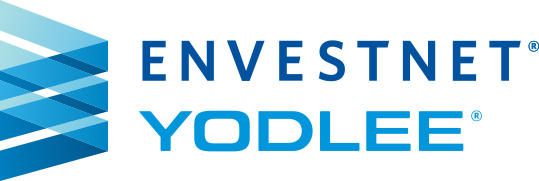The dynamic financial landscape has changed, mastering the intricacies of wealth management requires more than just savvy decision-making—it demands harnessing the transformative power of AI finance tools.
These innovative technologies, driven by sophisticated algorithms and data analytics, have become indispensable for individuals and institutions alike seeking to navigate the complexities of investing.
As a seasoned expert at the intersection of AI and finance, I’m here to shed light on the cutting-edge tools revolutionizing the industry.
Join me as we embark on a journey to explore 10 top-tier AI tools for finance, each poised to redefine the way we manage our finances.
| AI Finance Tool | Key Moments |
|---|---|
| QuantConnect | – The launch of QuantConnect’s platform revolutionizes algorithmic trading, democratizing access to advanced trading strategies. – Integration of machine learning libraries enhances QuantConnect’s analytical capabilities, attracting traders seeking predictive insights. |
| Yodlee | – Yodlee’s acquisition by Envestnet in 2015 catapults the financial data aggregation platform into the spotlight, signaling a new era of innovation in personal finance management. – Introduction of AI-powered transaction categorization and spending insights elevates Yodlee’s value proposition, empowering users with actionable financial intelligence. |
| Personal Capital | – Personal Capital’s funding round in 2016 raised $75 million, fueling the expansion of its AI-driven wealth management platform and solidifying its position as a leading robo-advisor. – Integration of Smart Withdrawal technology in 2019 enhances Personal Capital’s retirement planning capabilities, offering personalized withdrawal strategies for users. |
| Betterment | – Betterment’s launch in 2010 disrupts the traditional wealth management industry, introducing automated investing solutions powered by AI algorithms. – Expansion into 401(k) and retirement planning services in 2015 expands Betterment’s reach, catering to a broader range of investors seeking simplified wealth management solutions. |
| Wealthfront | – Wealthfront’s introduction of Path in 2017 marks a significant milestone, offering comprehensive financial planning tools powered by AI to help users achieve their long-term financial goals. – The launch of the Risk Parity Fund in 2020 demonstrates Wealthfront’s commitment to innovation, providing users with diversified investment options tailored to their risk tolerance. |
| Quicken | – Acquisition of Quicken by H.I.G. Capital in 2016 revitalizes the personal finance software, ushering in a new era of development and innovation. – Integration of AI-driven budgeting and expense tracking features in Quicken 2020 enhances user experience, providing real-time insights into financial health and spending habits. |
| ZestFinance | – ZestFinance’s collaboration with major financial institutions in 2018 highlights the growing importance of AI-driven underwriting solutions in the lending industry, streamlining credit assessment processes. – Expansion into international markets in 2021 broadens ZestFinance’s global footprint, offering AI-powered credit risk assessment solutions to a wider range of financial institutions. |
| Kensho | – The acquisition of Kensho by S&P Global in 2018 validates the significance of AI-driven analytics in financial markets, providing S&P Global with advanced predictive capabilities. – The launch of Kensho’s Market Intelligence Platform in 2020 transforms how traders and investors access real-time insights, leveraging AI and natural language processing to analyze market data. |
| Kavout | – Kavout’s partnership with leading investment firms in 2017 establishes its reputation as a trusted provider of AI-driven investment research solutions, empowering investors with predictive analytics. – Introduction of K Score in 2019 enhances Kavout’s stock scoring model, offering users a proprietary metric to assess investment opportunities based on AI-driven analysis. |
| AlphaSense | – AlphaSense’s expansion into new markets and industries in 2018 broadens its user base, providing professionals across various sectors with AI-powered research capabilities. – Integration of advanced search features and natural language processing in AlphaSense 2021 enhances usability and accuracy, enabling users to uncover actionable insights more efficiently. |
Exploring Top 10 AI Finance Tools

QuantConnect stands out as a premier algorithmic trading platform, empowering users to design, backtest, and deploy trading strategies with ease.
Its integration with Python and C# allows for flexible customization, while access to extensive financial data and machine learning libraries enhances analytical capabilities.
However, users may encounter a steep learning curve when navigating its advanced features.

Yodlee AI-driven financial data aggregation platform provides invaluable insights into spending patterns, budgeting, and personalized financial advice.
Its ability to categorize and analyze transaction data efficiently streamlines financial management processes.
However, concerns regarding data privacy and security have been raised, prompting users to exercise caution when sharing sensitive information.

Personal Capital offers a comprehensive suite of financial management tools, leveraging AI to deliver tailored investment advice, retirement planning, and portfolio management services.
Its intuitive interface and robust analytics make it a popular choice among users seeking to optimize their financial strategies.
Nonetheless, some users may find its premium services come with higher fees compared to other alternatives.

As a leading robo-advisor platform, Betterment utilizes AI algorithms to automate investment decisions based on users’ financial goals and risk tolerance.
Its seamless user experience and automatic portfolio rebalancing feature appeal to novice investors seeking a hands-off approach to wealth management.
However, users should be mindful of potential limitations in customization options compared to traditional investment advisors.
Wealthfront mirrors Betterment’s robo-advisor model, employing AI to manage investment portfolios efficiently.
Its emphasis on tax optimization strategies and low fees makes it an attractive option for cost-conscious investors.
Nonetheless, users may experience limitations in portfolio customization compared to actively managed accounts.

Quicken’s AI-powered personal finance software offers robust budgeting, bill tracking, and investment management features.
Its ability to categorize transactions and generate customized reports facilitates comprehensive financial planning.
However, some users may find its desktop-based interface less user-friendly compared to cloud-based alternatives.

ZestFinance AI-driven underwriting platform revolutionizes the lending industry by leveraging machine learning algorithms to assess credit risk accurately.
Its data-driven approach enables financial institutions to make informed lending decisions and offer fairer rates to borrowers.
However, concerns regarding algorithmic bias and transparency in credit scoring methodologies may arise.
Kensho’s financial analytics platform harnesses AI and natural language processing to analyze market data and provide real-time insights.
Its ability to identify market trends, risk factors, and investment opportunities aids traders and investors in making informed decisions.
Nevertheless, users should remain vigilant of potential limitations in predictive accuracy during periods of market volatility.

Kavout AI-driven investment research platform offers predictive analytics, sentiment analysis, and stock scoring models to assist investors in identifying trading signals.
Its sophisticated algorithms provide valuable insights into stock market trends and investment opportunities.
However, users should exercise caution and supplement AI-generated recommendations with their research and analysis.
AlphaSense’s AI-powered financial search engine enables users to search and analyze financial documents, earnings transcripts, and research reports efficiently.
Its natural language processing capabilities extract relevant information, facilitating in-depth investment research.
However, users may encounter limitations in the scope of available documents and sources.
AI finance tools have emerged as indispensable assets for individuals and institutions navigating the complexities of the financial landscape.
From algorithmic trading platforms to robo-advisors and underwriting solutions, these innovative tools offer unparalleled capabilities to optimize investment strategies, streamline processes, and drive financial success.
By harnessing the power of AI, users can gain a competitive edge and achieve their financial goals with confidence.
FAQs:
- Are AI finance tools suitable for all investors?
- While AI finance tools offer valuable insights and automation capabilities, investors should assess their individual needs and risk tolerance before integrating these tools into their financial strategy.
- How can users ensure data privacy and security when using AI finance tools?
- Users should carefully review the privacy policies and security measures implemented by AI finance tool providers to safeguard their personal and financial information. Additionally, employing strong passwords and encryption methods can enhance data protection.
- What are some potential drawbacks of relying on AI finance tools?
- Users should be aware of potential limitations in predictive accuracy and algorithmic bias when utilizing AI finance tools. Additionally, dependence on automated decision-making processes may hinder users’ ability to adapt to changing market conditions effectively. Therefore, it’s essential to supplement AI-generated insights with human judgment and expertise.
Pros and Cons of Top AI Finance Tools
| AI Finance Tool | Good Sides | Bad Sides |
|---|---|---|
| QuantConnect | – Empowers users with advanced algorithmic trading capabilities. – Offers flexibility with Python and C# programming languages. – Provides access to extensive financial data and machine learning libraries. | – Steep learning curve for beginners. – Requires a solid understanding of programming languages. – Complexity may overwhelm inexperienced traders. |
| Yodlee | – Efficiently aggregates and categorizes financial data. – Provides valuable insights into spending patterns and budgeting. – Offers personalized financial advice based on transaction analysis. | – Raises concerns about data privacy and security. – Users may encounter inaccuracies in categorizing transactions. – Limited customization options for advanced users. |
| Personal Capital | – Comprehensive financial management tools. – AI-driven investment advice and portfolio management. – Intuitive interface and robust analytics for users. | – Premium services come with higher fees. – Limited customization options compared to traditional advisors. – Relies heavily on automation, potentially sacrificing human touch. |
| Betterment | – Automates investment decisions based on user preferences. – Simplifies wealth management for novice investors. – Offers automatic portfolio rebalancing and tax optimization. | – Limited customization compared to traditional advisors. – Users may experience reduced control over investment decisions. – Fees may be higher compared to DIY investing platforms. |
| Wealthfront | – Emphasizes tax optimization strategies and low fees. – Offers automated portfolio management based on user goals. – Streamlines investment process for hands-off investors. | – Limited portfolio customization options. – May not suit investors with complex financial needs. – Relies heavily on automation, potentially overlooking unique situations. |
| Quicken | – Robust budgeting and bill tracking features. – Categorizes transactions and generates customized reports. – Offers comprehensive financial planning tools. | – Desktop-based interface may feel outdated. – Limited integration with cloud-based services. – Requires regular updates and maintenance. |
| ZestFinance | – Accurately assesses credit risk using AI algorithms. – Promotes fairer lending practices and rates. – Helps financial institutions make informed decisions. | – Raises concerns about algorithmic bias and transparency. – Limited visibility into credit scoring methodologies. – Potential for errors in credit assessment. |
| Kensho | – Provides real-time insights into market trends and opportunities. – Utilizes AI and natural language processing for analysis. – Assists traders and investors in making informed decisions. | – Predictive accuracy may falter during market volatility. – Users may encounter limitations in data coverage and sources. – Requires careful interpretation of insights amidst market fluctuations. |
| Kavout | – Offers predictive analytics and sentiment analysis for stock trading. – Provides valuable insights into market trends and signals. – Empowers investors with AI-driven research tools. | – Predictive accuracy may vary based on market conditions. – Users should supplement AI-generated recommendations with their own research. – Limited visibility into the underlying algorithms and methodologies. |
| AlphaSense | – Efficiently searches and analyzes financial documents and reports. – Utilizes natural language processing for comprehensive research. – Offers valuable insights for investment decision-making. | – Limited scope of available documents and sources. – Users may encounter challenges in accessing specific information. – Reliance on AI may overlook nuanced insights from human analysis. |
By exploring the strengths and weaknesses of each AI finance tool, we hope you will make informed decisions about which platforms align with your financial goals and preferences.



